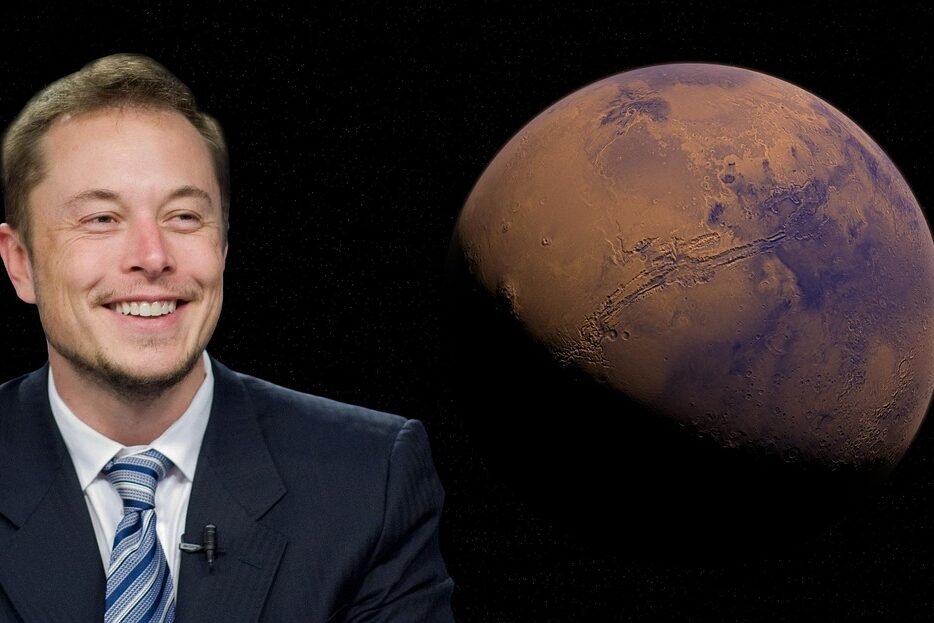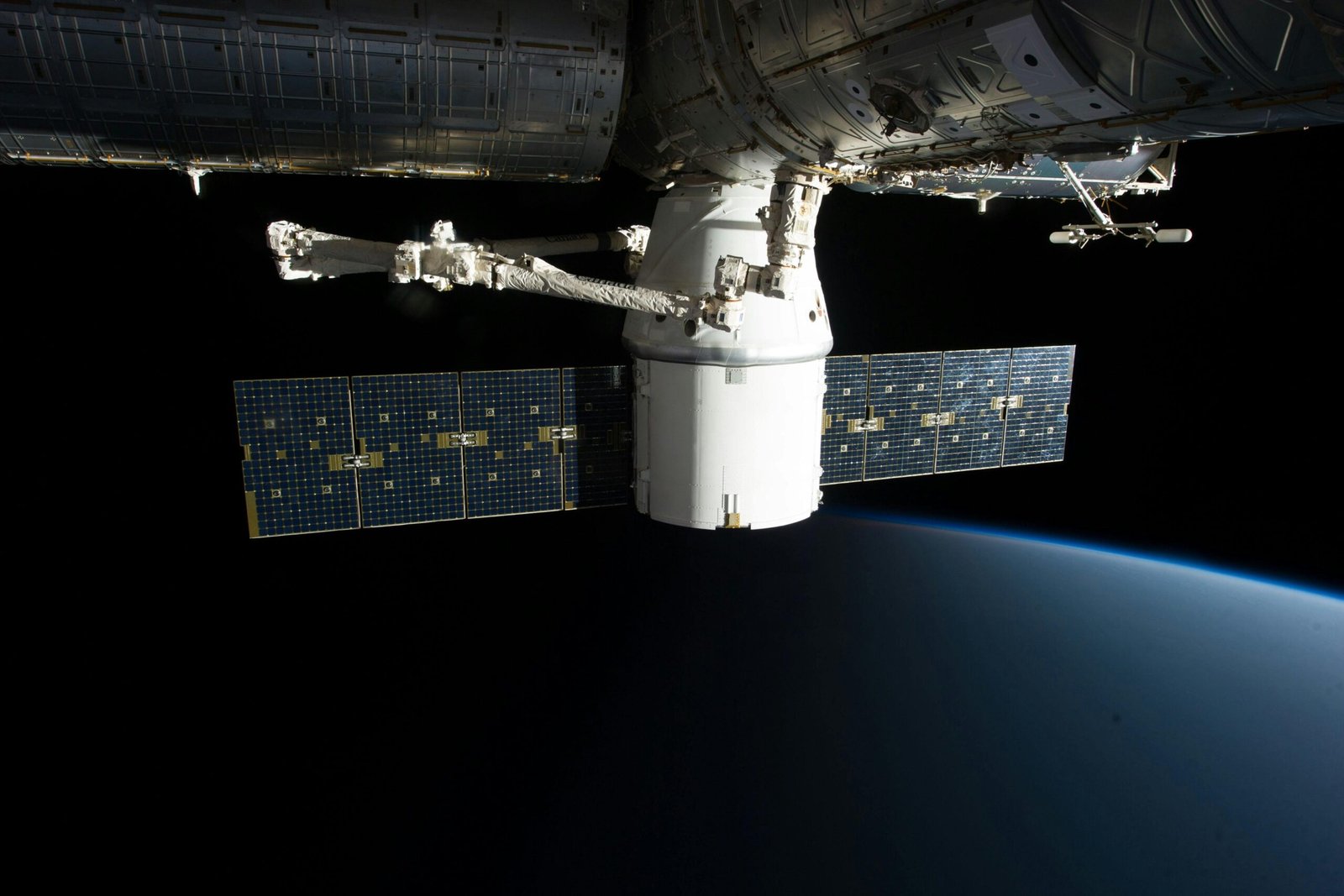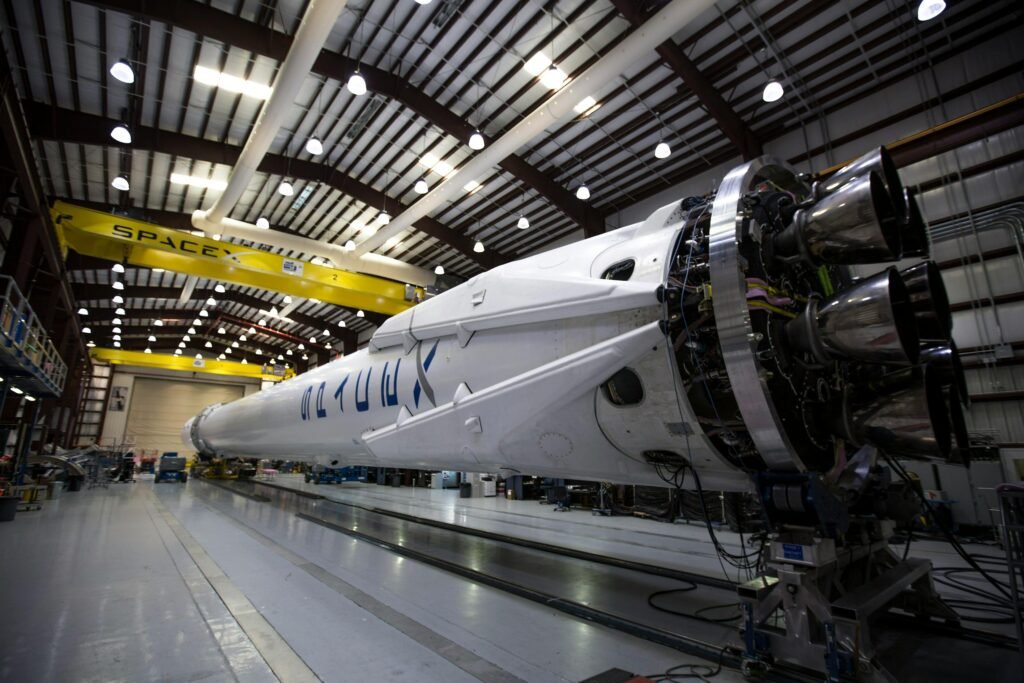Elon Musk’s Mars Vision: Humanity’s Backup Plan

Elon Musk’s dream of turning humans into a multi-planetary species isn’t just a wild fantasy—it’s a survival strategy. Picture this: Earth, our only home, could one day become uninhabitable. We’ve all heard the buzz around climate change, pandemics, and asteroid threats. Musk’s solution? Mars. He believes that establishing a human presence on the Red Planet isn’t just about reaching for the stars; it’s about ensuring humanity’s survival. For him, it’s about creating a “plan B” just in case Earth gets into trouble. And why Mars? Well, it’s the most Earth-like planet out there. If we can learn to live there, we can guarantee that humans have a shot at surviving, no matter what happens to Earth.
Musk is confident that, with the right technology and determination, this idea isn’t as far off as it might sound. It’s not about escaping Earth’s problems, it’s about expanding our horizons, literally. And while the idea of building a colony on Mars sounds like something out of science fiction, Musk has already made great strides. With SpaceX’s reusable rockets and Starship, he’s actually reducing the cost of space travel, which is the first step toward Mars colonization. So, Musk’s not just dreaming—he’s actively building the future. If all goes to plan, we might just see Mars as humanity’s second home sooner than we think.
Overcoming Mars’ Hostile Environment
Let’s not sugarcoat it—living on Mars is no walk in the park. With no breathable atmosphere and temperatures that can plummet to minus 195°F, it’s a pretty hostile place. Mars doesn’t exactly roll out the welcome mat. But that’s where Musk’s vision gets interesting. He’s not just hoping for the best; he’s planning for the worst. Mars may have a thin atmosphere made mostly of carbon dioxide, but with the right technology, we can turn it around. Think of building domes or underground habitats to shield humans from radiation and the freezing cold. These habitats would be fully equipped with life support systems to recycle air, water, and waste—essentially creating mini-Earths where humans could thrive.
Then, there’s the challenge of water. While Mars doesn’t have liquid water on its surface, it’s got plenty of frozen water hidden in ice caps. Musk’s plan includes harvesting that ice and turning it into usable water, a vital resource for growing food and sustaining life. The gravity on Mars is also much lower than Earth’s, which could cause issues for the human body. But Musk’s team is thinking ahead, possibly developing artificial gravity systems to keep settlers in good health. So, while Mars is tough, Musk’s vision isn’t about giving up—it’s about solving problems and making the impossible possible.
SpaceX’s Role: From Rockets to Mars Bases

When we think about Mars colonization, we can’t ignore the elephant in the room: space travel. This is where SpaceX comes in. Founded by Musk, SpaceX has already revolutionized space travel with its reusable rockets. But Musk’s ambitions don’t stop there—he’s pushing for Starship, a massive spacecraft that could carry humans and cargo to Mars and beyond. The beauty of Starship is that it’s not a one-off; it’s designed to be reusable, just like SpaceX’s Falcon 9. This makes space travel much more affordable and sustainable.
Think about it: once we have a fleet of Starships making regular trips to Mars, transporting settlers, supplies, and everything needed to build a colony, the process of colonization becomes a lot more achievable. And that’s Musk’s ultimate goal—making Mars as accessible as possible. The spacecraft’s design isn’t just about getting people there, though—it’s about creating a new interplanetary transport system that could turn Mars into a regular destination. This could be the foundation of an entirely new economy, one that spans not just Earth, but Mars as well. Musk’s vision isn’t just about sending people to Mars; it’s about creating an ongoing, thriving connection between two planets.
Mars Colonization: A Radical Step for Human Survival
If you’ve ever thought about how humans might survive a global catastrophe, Mars might be your answer. Musk sees Mars colonization as not just an exciting adventure, but as a critical step for the survival of humanity. Think about Earth’s current threats: climate change, nuclear war, asteroid impacts—you name it. Musk’s idea is simple: if humanity doesn’t expand beyond Earth, we risk putting all our eggs in one basket. A colony on Mars would be humanity’s backup plan, ensuring that if something goes wrong here, we’ll have somewhere else to go. It’s about spreading our risk, not just for survival, but for the continuity of our species.
Musk isn’t talking about abandoning Earth; he’s talking about ensuring we can continue to thrive as a species, no matter what. Mars represents humanity’s second chance. The cool part? It’s not just about surviving, it’s about thriving. Musk imagines a self-sustaining Martian colony that’s capable of growing its own food, recycling resources, and maintaining its own infrastructure—essentially creating a new society. It’s a radical step, but Musk believes that humanity’s future lies in the stars, and Mars is just the first step.
The Economics of Mars Colonization
When you hear about colonizing Mars, you probably wonder, “How in the world is this going to be paid for?” Musk’s vision isn’t just a technological one—it’s an economic one too. Colonizing Mars is going to cost an astronomical amount (pun intended), but Musk is banking on the potential for space-based industries to make it financially viable. SpaceX is already lowering the cost of space travel with reusable rockets, which is a game-changer. Imagine reducing the cost of getting to Mars by a factor of 10 or 100—suddenly, colonization becomes a lot more feasible.
And let’s not forget the potential for Mars to become an economic hub in its own right. Musk envisions industries like mining Martian resources, manufacturing goods, and even Mars tourism all contributing to the colony’s economy. As technology improves, the costs will go down, and more industries will open up on the Red Planet. Eventually, Mars could even have its own economy—one that’s independent from Earth. Musk’s bet is that the financial returns will be massive, and the investment in Mars colonization will pay off in the long run. So, while the upfront costs are huge, the potential for profit and growth is even bigger.
The Role of AI and Robotics on Mars
On Mars, humans won’t be the only ones doing the heavy lifting—AI and robotics will be just as important. Think about it: the Martian environment is incredibly harsh, and tasks like building habitats, mining resources, and conducting research are all going to need to be done in a way that minimizes risk to human settlers. That’s where AI-powered robots come in. These machines can work autonomously, making decisions on the fly, and can handle tasks that would be too dangerous or mundane for humans. They’ll be the unsung heroes of Mars colonization.
Musk’s plan relies heavily on AI to make Mars a livable place. Not only will robots handle construction and maintenance, but they’ll also be used to manage critical systems like food production, water recycling, and waste disposal. Essentially, AI will help create a self-sustaining colony, where human settlers can focus on more complex tasks while robots take care of the repetitive stuff. As the colony grows, these robots will be vital in ensuring everything runs smoothly. Musk’s vision for Mars is one where humans and machines work hand in hand, with AI playing a central role in the colony’s survival.
Terraforming Mars: Making It Habitable
When most people think of Mars, they picture a barren, dusty landscape—but Musk has a different vision. He believes that, with the right technology, we could terraform Mars, making it more Earth-like and capable of supporting human life. The idea is to warm up the planet by releasing greenhouse gases like carbon dioxide into the atmosphere, which would thicken it and increase temperatures. This process, while still in the realm of science fiction, could eventually create conditions where liquid water could exist on the surface. Imagine Mars with blue skies, flowing rivers, and green fields—a second Earth in our solar system.
However, there’s a big challenge: Mars lacks a protective magnetic field, which allows harmful solar radiation to reach the surface. Without a way to shield the planet, humans would face serious health risks. Musk has suggested that one solution might be creating artificial magnetic fields, or using other technologies to protect the settlers. Terraforming Mars is a long-term goal that might take centuries, but Musk believes that even if full terraforming isn’t possible, the technological advancements made in the process will still enable us to build a thriving colony. Whether or not Mars ever becomes Earth-like, the process of turning it into a livable planet will undoubtedly push the boundaries of what we think is possible.
The Moral and Ethical Questions of Mars Colonization
Mars colonization brings up some big moral and ethical questions. After all, we’re talking about sending humans to a distant planet, where they’ll have to build a new society from scratch. One of the biggest concerns is whether it’s ethical to colonize a planet that might already have life, even if it’s microscopic. The discovery of potential signs of past or present life on Mars could change everything. Are we potentially disturbing or destroying another form of life in the pursuit of humanity’s expansion? These are questions we need to think about before we make a move.
Then there’s the issue of who gets to decide who goes to Mars. Will it be a select group of wealthy individuals or government-backed astronauts? Musk envisions a democratized process where people from all walks of life have the chance to be part of the Mars mission. But the reality could be different—there’s a risk that only the privileged few will get to make the trip. As we consider the ethics of space colonization, these questions about equality, environmental impact, and respect for other life forms will be essential to address. Colonizing Mars could force us to confront our own values and the true cost of expansion.
The Challenge of Building a Self-Sustaining Colony
For Mars colonization to work, it’s not enough just to get there; the colony has to be self-sustaining. Musk’s vision of a permanent presence on Mars relies on creating a system where settlers can produce their own food, water, and oxygen, and recycle all their waste. In other words, Mars needs to be able to “run itself,” at least to a certain extent. Without a reliable supply of resources from Earth, the colony would need to figure out how to survive on its own. This is a monumental task, and it’s not something we can achieve overnight.
The key to self-sufficiency will be technology, particularly in areas like agriculture and resource management. Space-based hydroponics could be used to grow crops in Mars’ low gravity, while advanced water recycling systems will be needed to ensure a constant supply of drinkable water. Oxygen can be generated from the planet’s carbon dioxide atmosphere, while waste will need to be carefully managed to ensure nothing is wasted. Mars colonization will essentially require a closed-loop system, where everything is reused and recycled. It’s a challenge, but if we can crack it, it could open the door to sustainable living in space and possibly beyond.
SpaceX’s Starship: The Ultimate Interplanetary Vehicle

When we talk about getting to Mars, we can’t overlook the role of SpaceX’s Starship. This massive spacecraft isn’t just a bigger, better version of a rocket—it’s designed to carry up to 100 people and all the cargo needed to establish a colony on Mars. Starship’s goal is to make interplanetary travel possible, affordable, and, most importantly, sustainable. SpaceX is betting that the future of space exploration lies in reusable spacecraft, and Starship is the flagship vehicle for that vision.
The beauty of Starship is that it’s not just for Mars—it’s designed to take people to the Moon, the asteroids, and even other planets. Musk envisions Starship as the centerpiece of an interplanetary transportation network, with regular flights between Earth, Mars, and beyond. This kind of infrastructure is key to making Mars colonization a reality. SpaceX’s ability to reduce the cost of space travel and make it more frequent will play a huge role in how quickly we can establish a permanent presence on Mars. Starship is the vehicle that could make Musk’s dream of colonizing Mars come true—without it, the vision would be far less feasible.
Mars as Humanity’s New Frontier
The idea of colonizing Mars taps into something deep within human nature: the desire to explore. For centuries, humans have sought out new lands, from the Age of Exploration to the space race. Now, Mars is the next frontier. And while the challenges are immense, the rewards could be even greater. If Musk’s vision becomes a reality, humanity will have taken a giant leap forward, becoming an interplanetary species with the ability to survive beyond Earth. This kind of exploration goes beyond just discovering new places; it’s about expanding our very existence into the cosmos.
For generations to come, Mars could represent the next great adventure for humankind. It’s a chance to rewrite the story of humanity—not just as Earth-dwellers, but as pioneers of space. The idea of Mars as a new home for humanity might sound far-fetched, but as technology advances and we make strides in space travel, the possibility of turning this vision into reality becomes more and more likely. Mars represents more than just a new planet—it represents the next chapter in the human story, one of exploration, survival, and infinite potential.
The Role of International Collaboration in Mars Colonization
Mars colonization isn’t just a project for SpaceX and Elon Musk—it’s a global challenge that will require international collaboration. While Musk’s plan is focused on SpaceX’s ability to transport people and resources to Mars, the success of such an endeavor will require input and cooperation from governments and organizations around the world. The scale of the undertaking is simply too vast for any single entity to handle alone. Collaborative efforts in areas such as space law, resource management, and planetary protection will be essential to ensuring that Mars colonization is conducted responsibly.
International collaboration could also bring about the pooling of resources and expertise. Countries with established space programs, such as NASA, Russia, and China, will need to work together with private entities like SpaceX to achieve Mars colonization. In this context, collaboration could lead to new discoveries, shared technologies, and global unity in the pursuit of a common goal. This collaborative approach would ensure that Mars colonization benefits all of humanity, rather than being dominated by a single country or corporation. However, navigating the complexities of international cooperation in space will require careful diplomacy and the creation of new space laws and agreements.
Will Mars Colonization Become Humanity’s Greatest Achievement?
Mars colonization is undeniably one of humanity’s greatest challenges, but it could also become our greatest achievement. If successful, it would mark a monumental milestone in human history, showing that we have the ability to expand beyond Earth and create a new home for humanity. Mars colonization will require advances in science, technology, and cooperation, but it also represents the very spirit of exploration and resilience that has driven humanity throughout history. In a way, the very pursuit of Mars colonization reflects our desire to push boundaries and face the unknown.
While the journey to Mars is fraught with challenges, the potential rewards are immense. If humanity succeeds in creating a permanent presence on Mars, it will be proof that we have the capacity to overcome any obstacle, no matter how difficult. Musk’s vision is just one piece of a larger story of human progress, and Mars could be the next giant leap for mankind. Whether or not we succeed, the effort to colonize Mars will inspire generations to come, reminding us that humanity is capable of achieving the extraordinary when we come together and dream big. Mars colonization may seem distant, but as Musk’s plan continues to unfold, it’s possible that we’re on the cusp of one of the most important chapters in the history of humankind..
